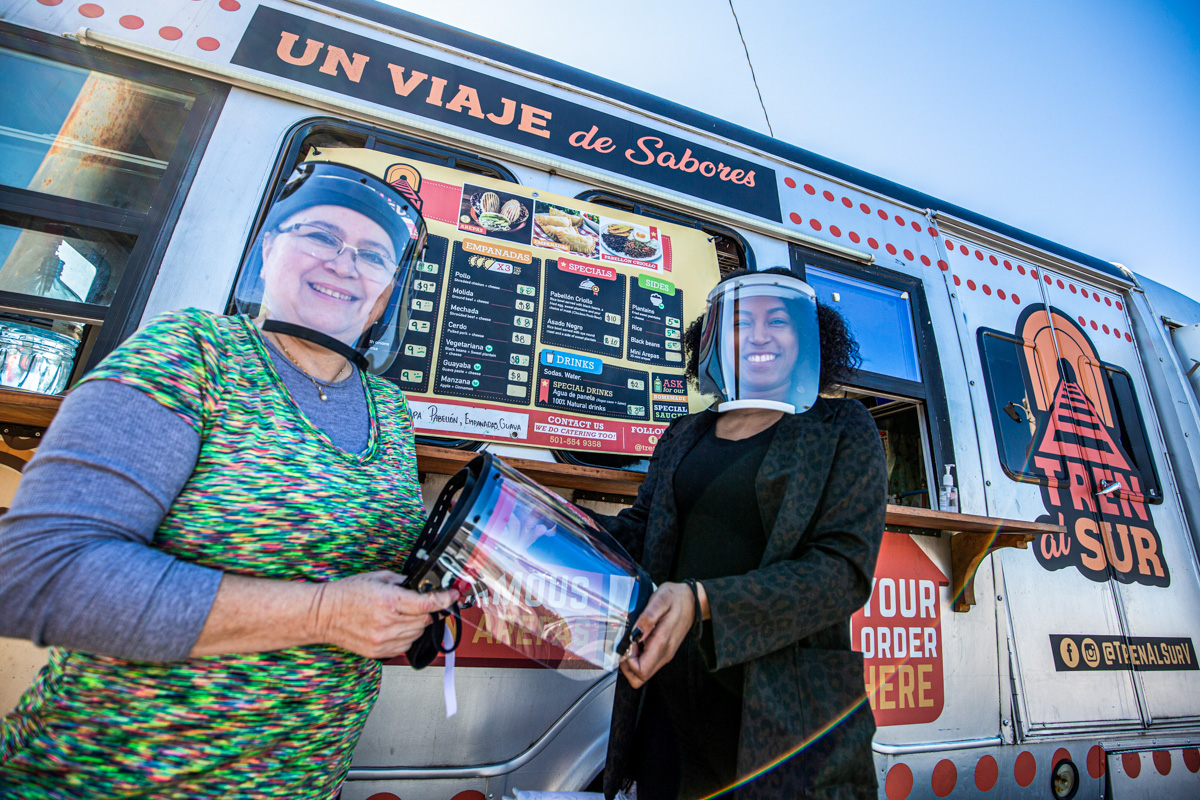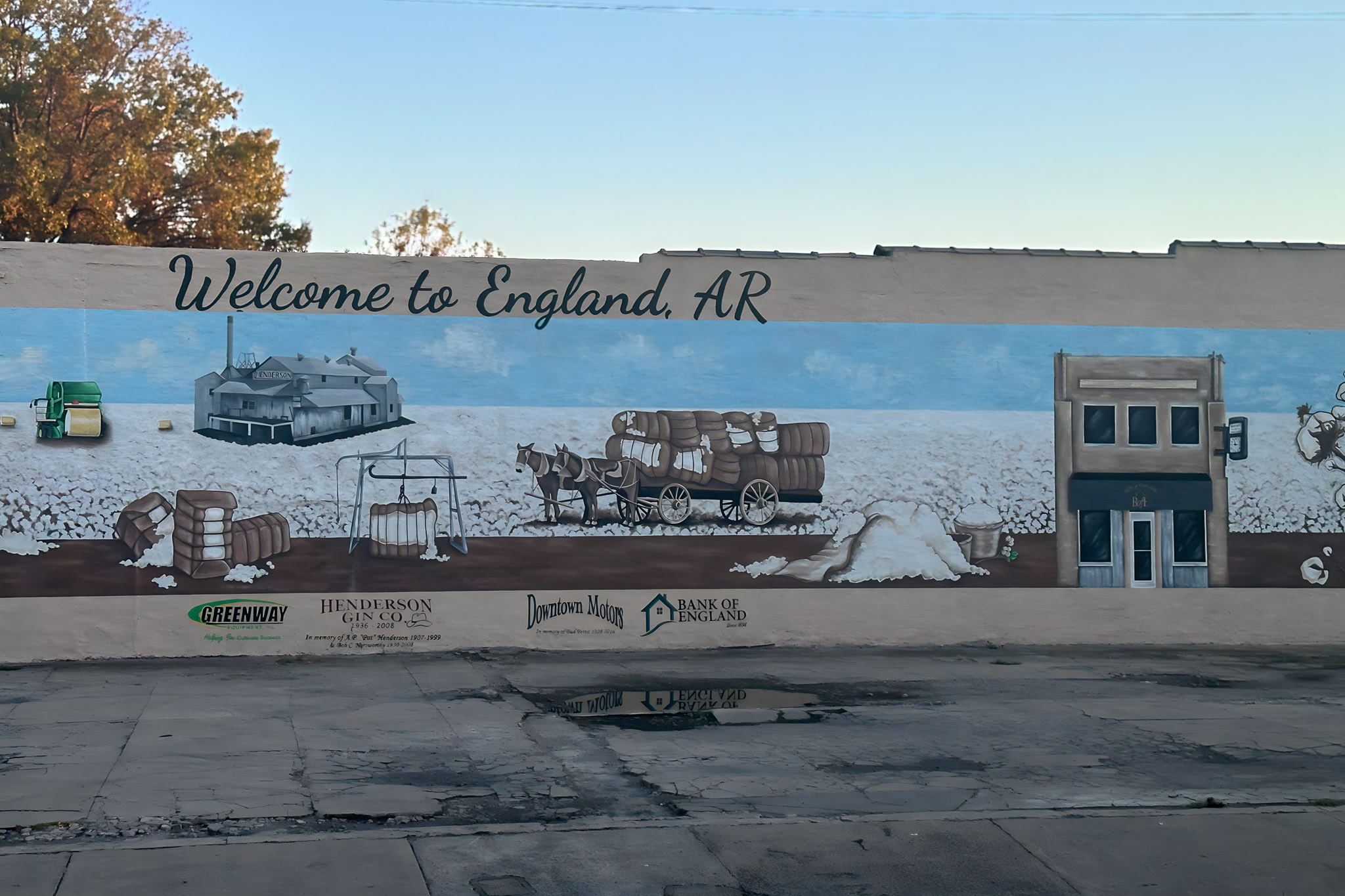
Vickie Woodard plants seeds of community growth
Vickie Woodard has always planted her own seeds to build community. Now, the seeds are sprouting ─ literally.
A tireless entrepreneur and community activist from England, Arkansas ─ a city of just under 3,000 people in the state’s economically fragile Delta region ─ Woodard secured a $90,000 grant from the U.S. Department of Agriculture to start a new community garden this past November.
It’s just her latest successful community endeavor. Woodard previously tapped a range of Winrock-led programs that support inclusive, community-based economic development and improved access to finance for BIPOC and women-owned enterprises across Arkansas and other parts of the U.S. South. She has leveraged knowledge, contacts and resources gained through participation in Winrock projects including the Rural Placemaking Innovation Challenge, the Southern Opportunity and Resilience Fund, the Delta I-Fund, and the long-running Arkansas Women’s Business Center into small enterprises and initiatives that contribute to economic and community development in the region.
Those programs helped to equip her with the tools and know-how to transform ideas into reality. Shortly after COVID hit, as she worked her way through Winrock programs, she started a new rental business catering to mobile nurses and others needing short-term, affordable safe housing. In the meantime, she and her fellow semi-retired neighbors in England — a group called the Concerned Citizens Committee — had begun taking small steps to brighten spirits and clean up their city. They started by simply picking up trash littering ditches and streets, moving from block to block to clean up the neighborhood.
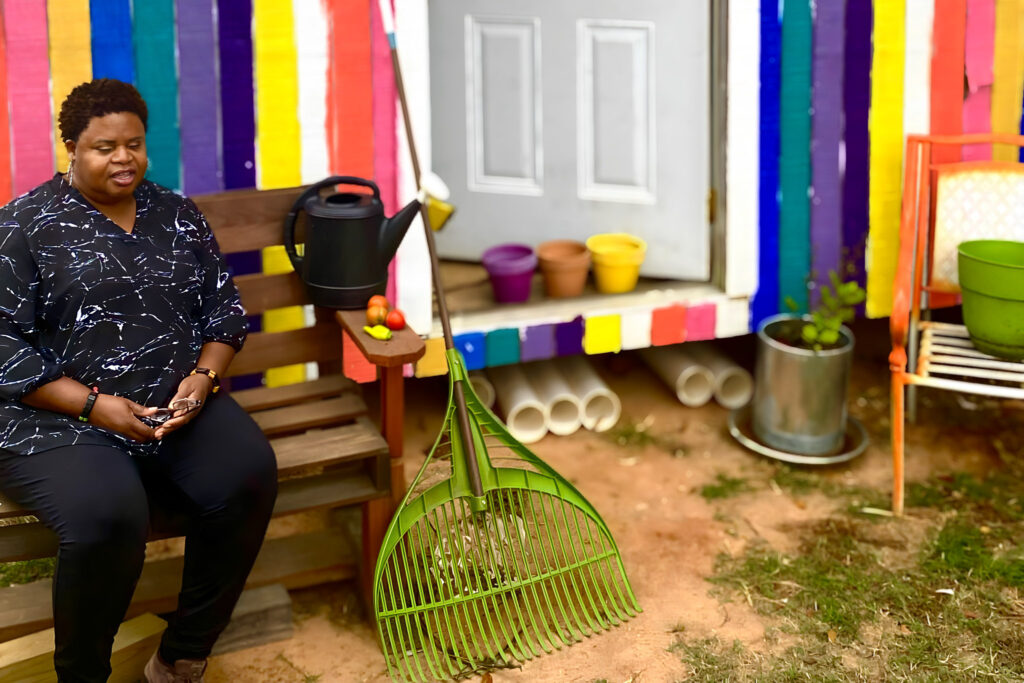
As months passed and volunteers dwindled, Woodard, a retired teacher and talented singer, held onto her dream of doing something bigger for England. Then, the only local grocery store in town shut down, making it harder for people to find fresh, healthy food. Woodard wondered how she could help to fill the vegetable void.
Like so many others stuck at home during the pandemic, her thoughts turned to the idea of a garden – but not just one for herself; it should serve many, she thought. She found a centrally located piece of land with about 23,000 square feet for the garden site and got to work.
“We live out in the country, so a lot of us have pickup trucks,” Woodard said. “If we can pick it up or get it donated, we figured we may have a viable thing here. So, our community started donating tires and lawn chairs and tables, and we even had a landscaper donate a bunch of wood for us to start building our counter-height raised beds.”
With the help of volunteers, Woodard hosted a series of “Garden Prep Days” to clear and prep the area for gardening. Before long, potatoes, turnips, tomatoes, and sweet potatoes popped up in those tires. She obtained and installed some solar panels to provide a bit of power. But for the garden to really grow, Woodard knew she would need funds. She began exploring the idea of turning the garden into an official nonprofit so she could apply for grants.
Ever resourceful, she began exploring the Community Development Financial Institutions Fund – a U.S. Department of Treasury fund that facilitates access to capital in underserved communities. The garden was already flourishing, with fresh vegetable crops coming in fast. She struck up a partnership with the Christ Corner Food Closet to give away the surplus food. Woodard’s nonprofit status became official, and she named it Melosong C.I.T.Y. Melosong is a word coined by Woodard, an accomplished singer, 20 years ago when she started her own production company. It’s a combination of the words “melody” and “song;” the C.I.T.Y. part stands for Community Impact Team Yes. The garden itself is named the Ollie Woodard / Cassie Stewart Serenity Garden, after Vickie’s mother, Ollie, and Cassie Stewart, the woman who previously owned the land where the garden is located.
Obtaining official nonprofit status for the garden opened up opportunities for grants that Woodard hoped would benefit England and contribute to community improvement.
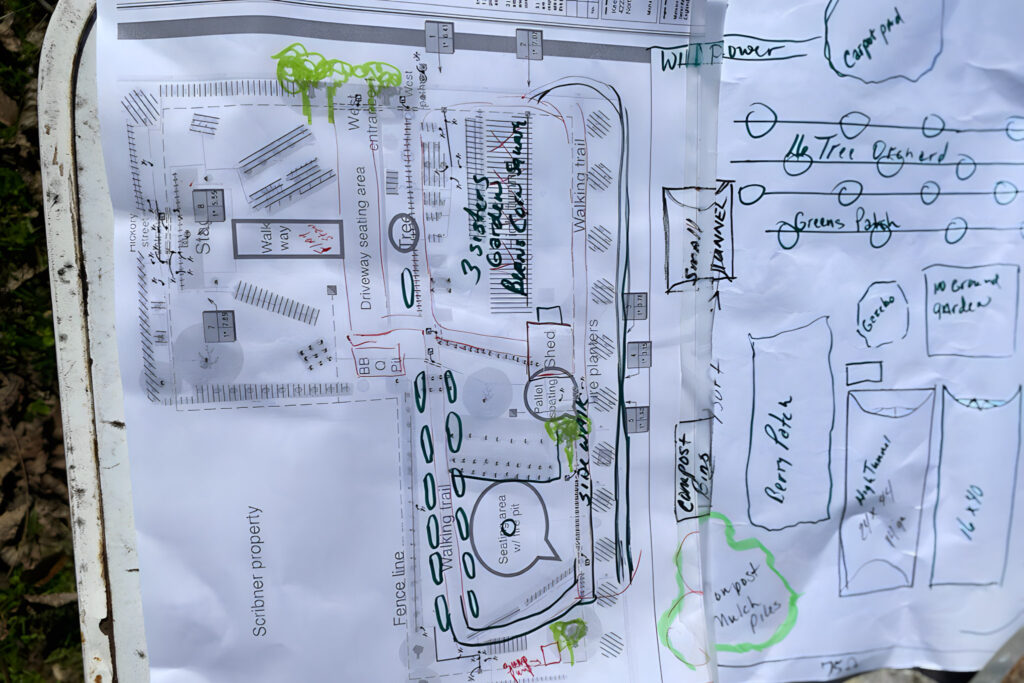
“We have an impoverished community problem,” Woodard says. “There’s drug use, which makes everything more complicated. We have an elderly population with health issues. If we can get them to eat healthier, then we can better thrive as a community overall.”
The garden was already underway when someone from the U.S. Department of Agriculture’s Natural Resource Conservation Management team caught wind of it. They recommended Woodard attend the 2023 Arkansas Grown Conference & Expo, an annual event that convenes leaders of Arkansas agriculture associations, producers and farmers focused on local food systems.
Connecting with Arkansan growers and others motivated to expand local food access prompted Woodard to begin applying for grants. She explored federal grant opportunities online, and though she didn’t win the first one she applied for, the experience taught her how to structure grant applications, including meticulously detailing her plans.
Along the way, she drew from knowledge, experience and ideas developed through her participation in Winrock-led programs, especially from the Arkansas Women’s Business Center. The AWBC introduced her to a system called Lean Canvas, a systemic approach used by startup entrepreneurs to build out ideas that target their ideal audiences. Woodard credits the program with helping her learn how to be succinct and clear about her plans.
All the prep work and planning, along with trial and error, led to her first big win: In August 2023, USDA notified Woodard that her garden project had been approved for funding. So far, she has used grant money to erect greenhouses and build 25 counter-height, metal frame raised vegetable beds. (One very useful thing Woodard picked up at the Arkansas Grown conference is that metal raised beds last longer than wood beds). Counter-height beds also are more accessible to senior citizens for weeding, planting and harvesting.
Woodard didn’t receive the USDA grant until January, but in the meantime, she had applied for (and won) some smaller grants, including from the Arkansas Community Foundation and Arkansas Blue Cross and Blue Shield, enabling her to purchase mulch, seeds and amendments. She has added storage and other infrastructure, including a high-tunnel greenhouse, and expanded the variety of plants with beets, greens, turnips, onions, garlic and carrots. Within the next few years, she’ll have 16 fully producing fruit orchards, including mulberry and banana trees. Though bananas aren’t often cultivated in Arkansas, cold-hardy varieties can be grown carefully and under the right conditions.
A state-of-the-art irrigation system was installed with the help of Eric Franklin, an irrigation contractor, and the garden now has tools and equipment including carts and wheelbarrows, row covers and signage. Marketing brochures have been distributed to the library, police and gas stations, and the garden’s website is now live and sharing news, updates, photos and other information. Students from the England High School EAST team are involved, helping to build beds and develop programming ideas.
Woodard’s garden is growing, and now she’s dreaming ─ and doing ─ more.
Recent improvements include a concrete porch converted into a stage for performances and events, electricity hookups and construction of a shed painted by Woodard’s community group in rainbow colors. Plans are in the works with muralists to showcase local art, as well as a paved path for people in wheelchairs to get to the stage.
She wants the garden to be a hub for community events and educational opportunities.
“Why not teach people how to grow food or inspire them to do it?” she asks.
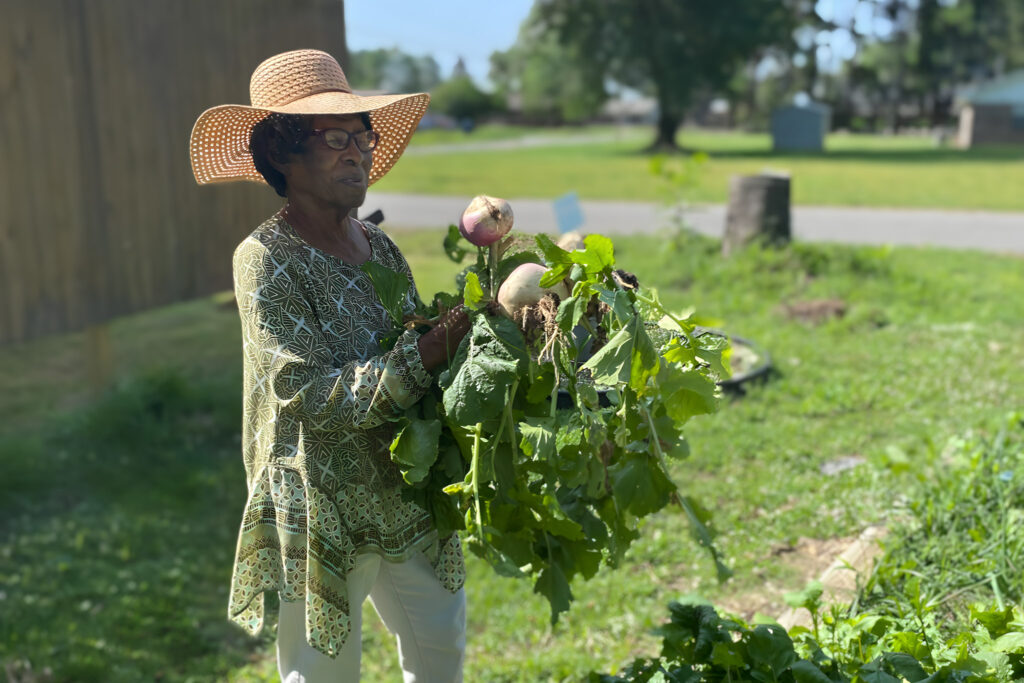
Geraldine Johnson, an active 86-year-old community member, picking turnips in the garden. Photo credit: Winrock International
Although the guidelines for the USDA grant are restricted to the garden’s improvement, Woodard plans to build onto the stage and eventually add a farm stand, where people can come and grab fresh vegetables as they please. The idea is to create a lively, safe space where people can connect and contribute to improving the England community.
“There are challenges to being in a rural community, you know, to doing this because you don’t have the number of people, the sheer number of people, you know that you can pull from to help,” she said. But the challenges will never be enough to stop her. For Woodard, this garden is a chance to plant life and hope in the community. It’s also a way to grow her family’s legacy.
“My parents were here trying to make things better for a Black community that was dealing with segregation and oppression,” Woodard says. “For me, it’s one of those torches that I just I hold up for community because I think somebody has to do it, and I didn’t always think this way.”
Related Projects
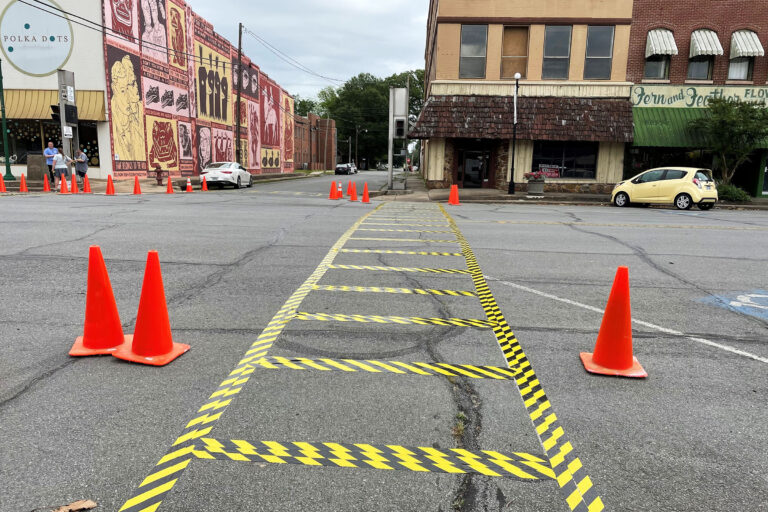
Rural Placemaking Initiative Challenge (RPIC): Delta Communities Connected through Placemaking
The Delta Communities Connected through Placemaking and Innovation (DCCPI) project seeks to facilitate locally driven efforts to improve quality of life, rural economy, and e-connectivity in the Mid-Delta region of Arkansas. DCCPI leverages the strong cultural identity and current placemaking efforts of Lonoke, England, Stuttgart, and Helena-West Helena with innovative state initiatives focused on enhancing […]
Southern Opportunity and Resilience Fund
The SOAR Fund is a partnership of local and national community finance organizations created to address the capital needs of historically disenfranchised communities across the South and Southeast U.S. as they attempt to rebuild after the COVID-19 health and economic crisis.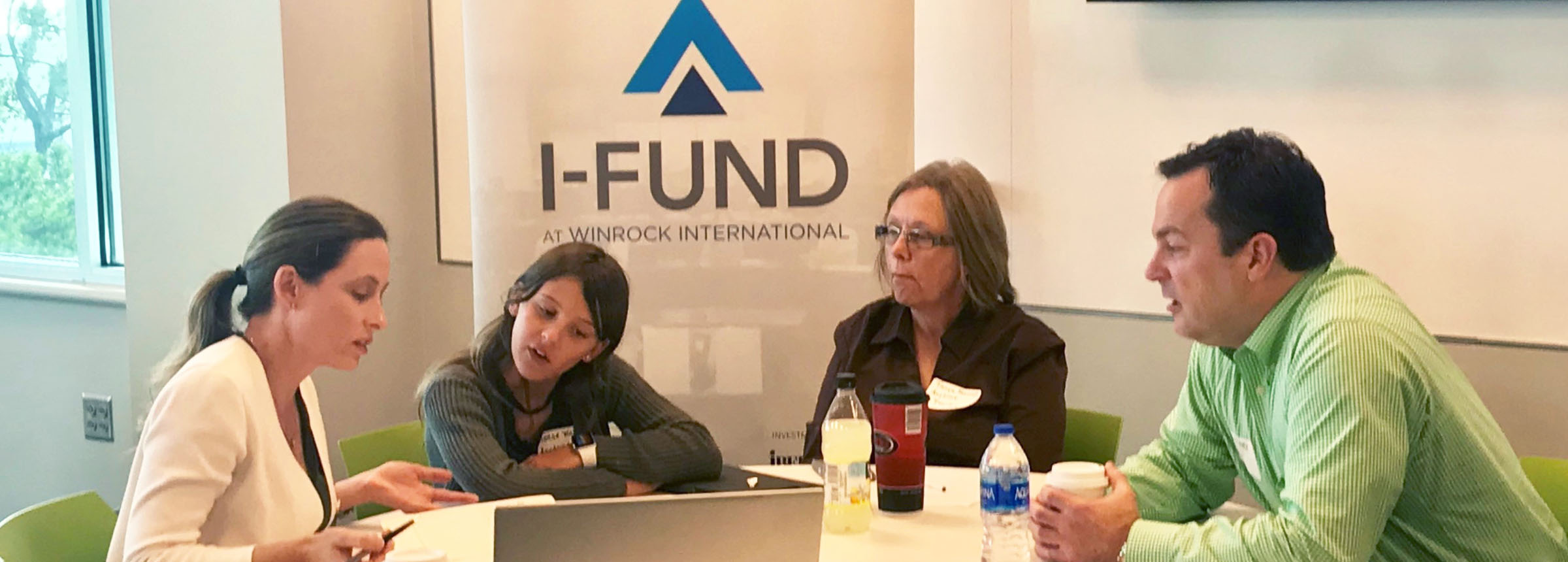
Delta I-Fund II
With a mission to positively impact communities throughout the eight-state, 252-county territory of the Delta Regional Authority (DRA), the Delta I-Fund II provides a platform for the creation and launch of high-growth companies, spurring economic development and job creation. The I-Fund is a proof-of-concept business accelerator training program designed to assist teams and potential start-up…